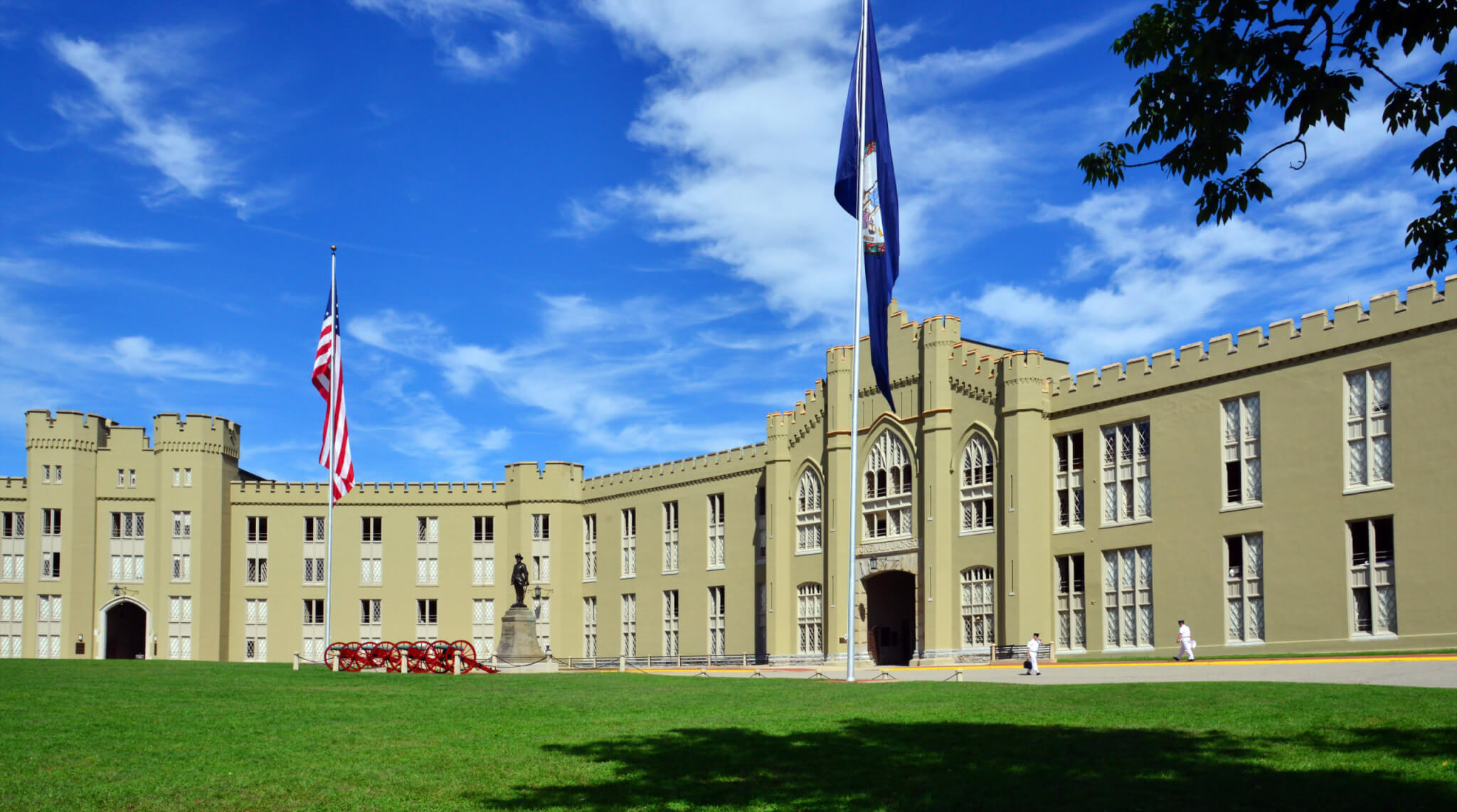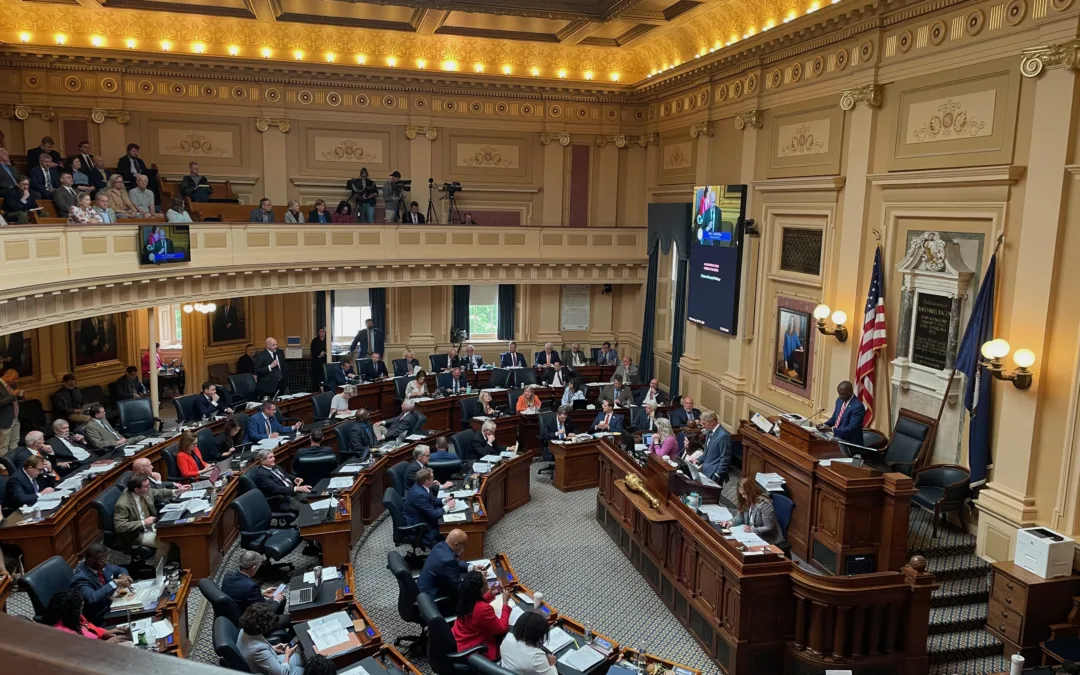
File photo.
State diversity officer outlines changes VMI needs to make.
LEXINGTON-Two months ago, several Black Virginia Military Institution cadets came forward. They talked about numerous incidents of racism that happened inside the school’s walls. A similar situation happened in the summer, as cadets and alumni told of a place where lynching threats occured and faculty openly praised the Confederacy. VMI said those were isolated incidents, promising change.
Now, faced with a state investigation, the institution is trying to make the school a safer place for students and staff of color. But in order to prevent racism, you have to know what it actually is, what it looks like and how it can manifest in people. And unfortunately, in America, that’s not necessarily common knowledge. That’s where Dr. Janice Underwood comes in.
Dr. Underwood, who serves as Virginia’s Chief Diversity and Inclusion Officer, has met multiple times with VMI’s Board of Visitors over the last two months. That was part of the order handed down from Gov. Ralph Northam. The governor and General Assembly set aside $1 million for a national organization to investigate VMI’s culture. Also, Northam ordered the board to meet with Dr. Underwood.
During their latest meeting Dec. 15, Underwood went into detail about what steps VMI should take in order to make their campus truly inclusive.
READ MORE: Northam Orders Independent Investigation Into VMI Charges
What the School Needs to Do
VMI cadets have been very vocal about their desire for a more inclusive campus. But what does true inclusivity mean?
“Full inclusion fosters a feeling of belonging and respect in the differences and uniqueness that everyone brings to a workplace or an institution,” said Underwood. And in order to get closer to that feeling, VMI will have to change some things.
According to Underwood, the school needs to create a welcoming environment that celebrates and engages its diverse group of cadets. In order to do that, the organization’s stakeholders have to respect everyone’s ideological, religious and racial differences.
Underwood recommended that VMI takes on a DEI approach, putting their focus on increasing diversity, equity and inclusion. VMI should consider creating a Vice President of Diversity position, she said, someone that would report directly to the superintendent.
“It should be an executive cabinet role,” said Underwood. “This person should be a part of creating a diversity strategic plan. And there should be accountability for that plan.”
Underwood also recommended creating a group centered around diversity and inclusion that cadets could join. Other institutions of higher education offer memberships to the National Association of Diversity Officers in Higher Education.
VMI Mentality Causes Problems
The VMI system is based on one fundamental premise, members of the Board of Visitors say. Everyone is treated poorly. The Board argued this was proof of the school’s non-discriminatory nature. Underwood countered that, however, saying this actually could’ve made it easier for students to get away with being racist.
Right now, one of the biggest struggles VMI cadets face is having the courage to even report acts of racism against them. The current motto makes it easy for these cruel actions to get swept under the rug.
“A lot of bad actors hide out under the system of ‘everyone gets treated badly,” Underwood said. “So when those micro aggressions and those other incidents take place, people make the assumption things are bad anyway and it always sucks. So, it allows people with bad intentions to hide behind an overall gloomy system.”
According to Underwood, it does nothing to break the cycle of racial turmoil VMI is dealing with. Overall, it’s important that VMI teaches all their cadets emotional intelligence so they can engage in conversation about race.
“I encourage the faculty to think of these conversations not as icing on cake that they can scrap off if they don’t feel like eating it,” said Underwood. “But embedding them across curriculums and really thinking about building cadets’ capacity and their emotional intelligence to have these very complicated and nuanced conversations.”
The Importance of Talking About Racism
One of the biggest misconceptions about racism is that only bad people are guilty of it. But, that’s not true at all. It’s this misconception that makes racism so hard to talk about in America. During her presentation, Underwood cited a study by Dr. Robin DeAngelo that explains this phenomenon.
According to DeAngelo, most people associate racism with extreme acts of violence like lynchings, hate crimes and using racial slurs.
“And on the other hand, Dr. DeAngelo said that good people are not racist,” said Underwood. “So if you’re a good person, you couldn’t possibly be racist. So having diverse friends or relatives that are Black make people think they couldn’t possibly be racist.”
But that’s not true. People aren’t all good or all evil. And operating in such huge extremes doesn’t do anything to hold the people who fall in the middle accountable.
“We have to resist this narrow binary,” said Underwood. “Because in this way, racism is sustained.”
In order to get rid of racism, people need to directly address it. Statements like “I don’t see color” or “racism was in the past” and “race doesn’t have any meaning” do nothing to address the long, ugly history of racism in this country.
“Something as simple as a thought fueled by our narrow lived experience can turn into generalizations which can turn into bias,” said Underwood. “And left unchecked that bias can turn into micro aggressive behavior. And if left unchecked, can turn into racism.”
Arianna Coghill is a content producer with the Dogwood. You can reach her at [email protected]
Politics

Youngkin, Democrats to start over on budget talks
The Republican governor stood with Democratic leaders in the General Assembly on Wednesday in a bid to ease tensions over their budget debate....

VIDEO: Domestic abuse victims speak out against the gun law bills Gov. Glenn Youngkin vetoed
Senate Bill 47 and House Bill 46 aim to close the loophole that allows offenders to transfer their firearms to someone else instead of relinquishing...
Local News

Virginia verses: Celebrating 5 poetic icons for National Poetry Month
There’s no shortage of great writers when it comes to our commonwealth. From the haunting verses of Edgar Allan Poe, who found solace in Richmond's...

Join the fun: Recapping Family Literacy Night’s storybook adventures
When’s the last time you read a book aloud with a loved one? If it’s difficult to answer that question, then maybe it’s time to dust off that TBR...




